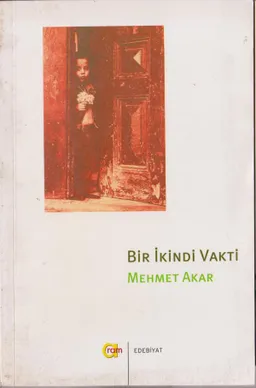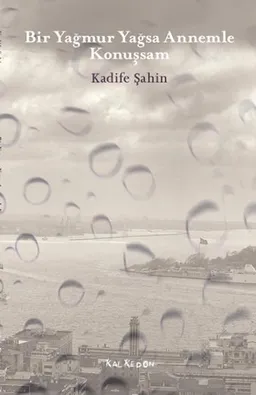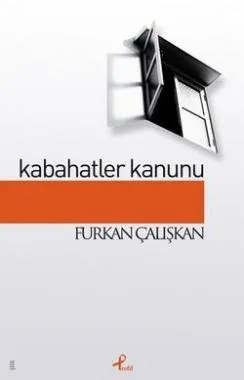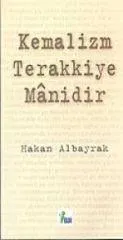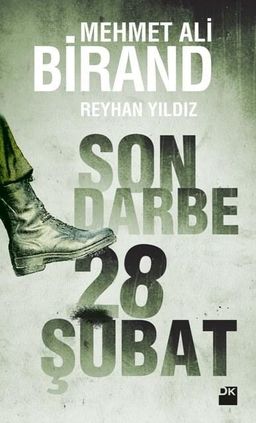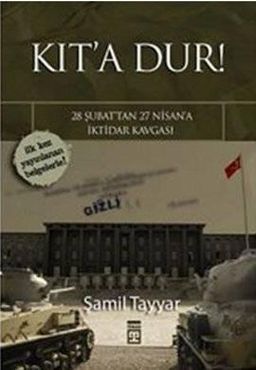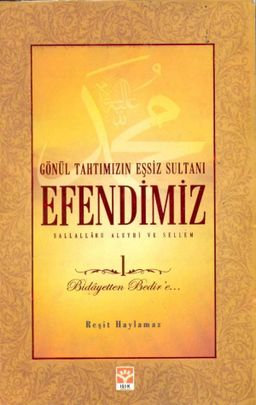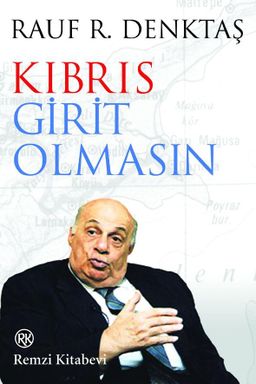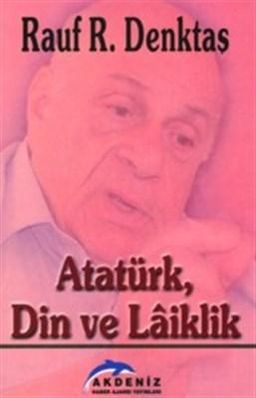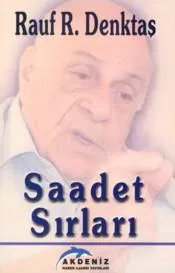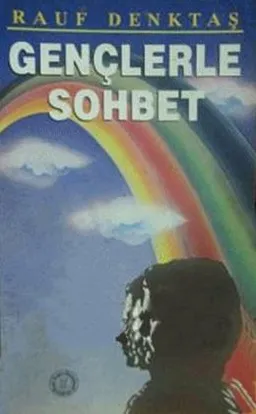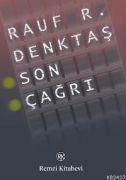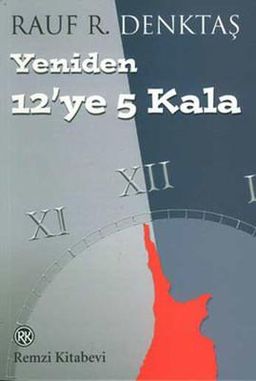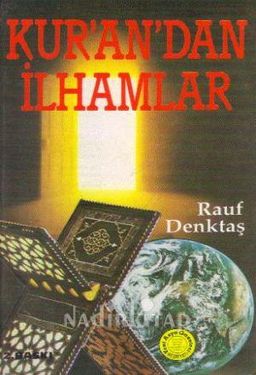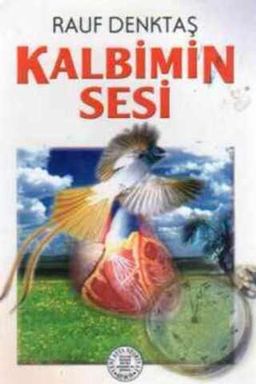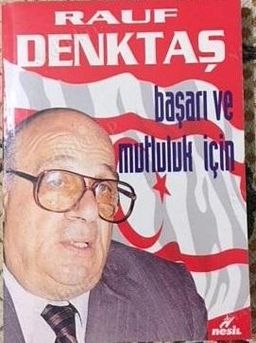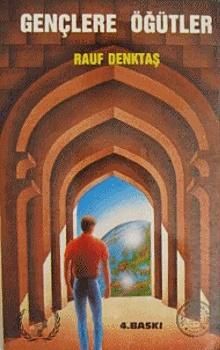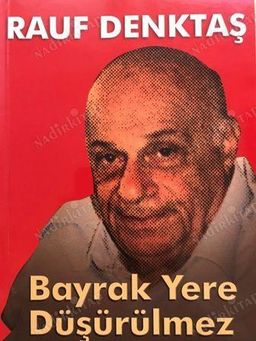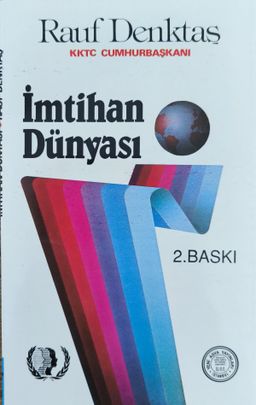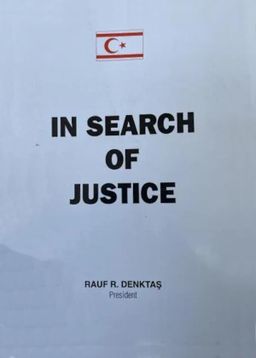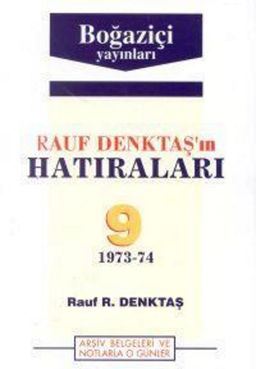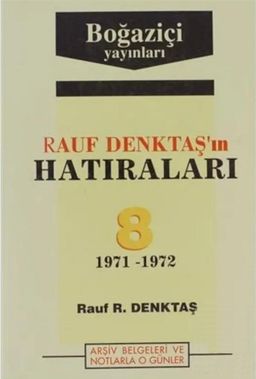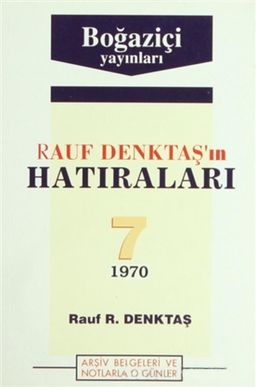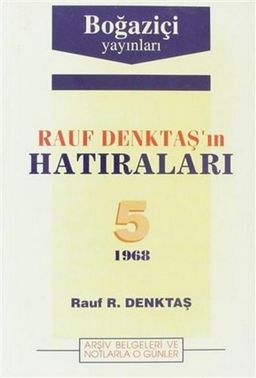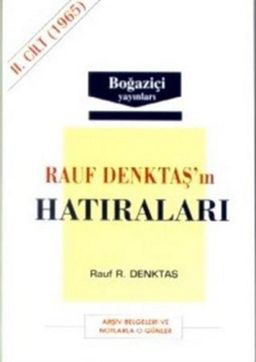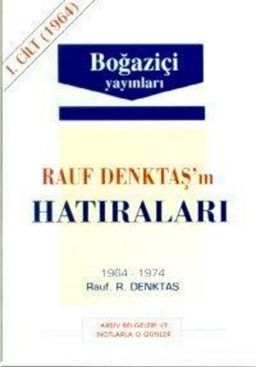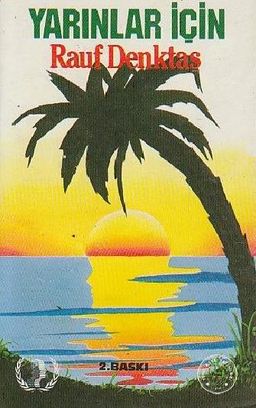About Gençlere Öğütler
Gençlere Öğütler subject, statistics, prices and more here.About
Author: Rauf R. Denktaş
Türler:
Estimated Reading Time: 1 hrs. 45 min.Page Number: 62Publication Date: 1995Publisher: Yeni Asya YayınlarıCountry: TürkiyeLanguage: TürkçeFormat: Karton kapak
About the Author
Rauf R. DenktaşYazar · 24 books
This text has been automatically translated from Turkish. Show Original
Rauf Raif Denktaş (27 January 1924, Paphos - 13 January 2012, Nicosia), Turkish Cypriot politician and writer. Denktaş was the founder and first president of the Turkish Republic of Northern Cyprus.
First years
Rauf Denktaş lost his mother when he was 1.5 years old. His father is judge Raif Bey. Raised by his grandmother and grandmother, Denktaş was sent to Istanbul for education in 1930. He started to study as a boarding student at Fevzi Ati High School, which provides education from primary school to high school in Arnavutköy. After secondary school, he returned to Cyprus and graduated from the British School in Nicosia in 1941. After graduation, he started writing articles in Fazıl Küçük's newspaper, Halkın Sesi. He later worked for a while as a translator, court clerk and teacher at the English School in Famagusta. In 1944, he went to England to study law at Lincoln's Inn. He returned to the island in 1947 and started working as a lawyer. Denktaş, who later became a prosecutor, was promoted to chief prosecutor in 1956.
Political Life
Years of Struggle
He spoke together with Fazıl Küçük at the first rally organized by the Turkish Cypriots on 27 November 1948. He made his first public address on this occasion and at the age of 24. He took on the role of mediator between two important names of the Turkish community, Faiz Kaymak and Fazıl Küçük, and followed the interests of the society. With the proposal of Faiz Kaymak and the approval of Fazıl Küçük, he was elected president at the Congress of the Turkish Cypriot Institutions Federation. Six months before he was granted the right to retire from his position as a prosecutor, he resigned by convincing the British administration with difficulty and began to deal with community problems. He started working as a lawyer in the summer of 1949. He married Aydın Hanım in the same year. Denktaş, who led the resistance of the Turkish Cypriots in the fight against Enosis, which took on a terrorist identity in 1955, and against EOKA, resigned from his post in the government in 1958. He founded the Turkish Resistance Organization (TMT) with his friends on August 1, 1958.
When Greek terrorists attacked Turkish villages in 1958, Turks also protested these events. Before the Zurich-London agreements, Fazıl Küçük and Rauf Denktaş went to Ankara to meet with the Minister of Foreign Affairs, Fatin Rüştü Zorlu. In this meeting, Denktaş expressed his proposal to send Turkish Soldiers to the island. He contributed to the preparation of the 1959 Zurich and London Agreements, the 1960 Agreements and the Constitution of the Republic of Cyprus. In the same year, he was elected as the Chairman of the Executive Committee of the Turkish Community Council. On August 16, 1960, the Turkish Regiment of 650 people landed in Famagusta Port. After the 1963 events, Denktaş went to Ankara to hold contacts. Having completed his contacts, Denktaş sailed to Cyprus with a boat and began to organize the Turkish resistance.
After the 1964 London Conference, he was declared persona non grata by Makarios. He was banned from entering Yeşilada. He secretly went to Erenköy and joined the war. He was arrested while sneaking onto the island in 1967. As a result of intensive efforts, he was returned to Turkey. He returned to Cyprus in 1968 when the ban on entry to the island was lifted.
Politics Era
He was elected as the President of the Turkish Community Council in the 1970 elections. He was elected Vice President of Cyprus and Chairman of the Turkish Cypriot Administration until 28 February 1973. Following the 1974 Cyprus Operation and the declaration of the Turkish Federated State of Cyprus on 13 February 1975, Denktaş, who also served as head of state and parliament, was elected as president in the first general elections held in 1976 in accordance with the constitution. He became president for the second time in 1981. He was re-elected as president after the declaration of the Turkish Republic of Northern Cyprus on 15 November 1983. He was elected president for the second time in the early elections held on April 22, 1990. He was elected president in the 1995 elections. In the 2000 elections, he received 43.67% of the votes and the election went to the second round; but he emerged victorious from the election after the other candidate in the second round, Derviş Eroğlu, withdrew. In 2004, he opposed the Annan Plan prepared by UN Secretary General Kofi Annan for the solution of the Cyprus Problem, although the plan was accepted by the Turkish Cypriots, it was not implemented due to the rejection of the Greek Cypriots. Denktaş, who was not a candidate in the Presidential elections held on April 17, 2005, handed over the post to Mehmet Ali Talat on April 24.
Social Life
Rauf Denktaş, who is an important figure as a writer as well as his political life, has books published by Yeni Asya Publications since the last months of 1985. Denktaş was also known as a very curious photographer and never gave up his camera. Rauf Denktaş was writing articles in the Halkın Sesi newspaper and presenting a program called Denktaş's Agenda on Mondays on the television channel ART, where he explained his views.
death
Rauf Denktaş, who was taken to Near East University Hospital with a diagnosis of organ failure on the night of January 8, died at the age of 88 on January 13, 2012, in the hospital where he was treated. Following his death, national mourning was declared in Turkey and TRNC. He was buried in Cumhuriyet Park in Nicosia with a state ceremony on 17 January 2012.
Books
Kıbrıs Girit Olmasın
8.6/10
Karkot Deresi
9.2/10
Atatürk, Din ve Laiklik
8.2/10
Saadet Sırları
6.4/10
Gençlerle Sohbet
9.5/10
Son Çağrı
8.2/10
Yeniden 12'ye 5 Kala
9.2/10
Kur'an'dan İlhamlar
10/10
Kıbrıs Elli Yılın Hikayesi
7/10
Kalbimin Sesi
0/10
Başarı ve Mutluluk İçin
7/10
Gençlere Öğütler
10/10
Bayrak Yere Düşürülmez
7/10
İmtihan Dünyası
0/10
In Search Of Justice
0/10
Rauf Denktaş'ın Hatıraları - 1...
0/10
Rauf Denktaş'ın Hatıraları - 9
0/10
Rauf Denktaş'ın Hatıraları - 8
0/10
Rauf Denktaş'ın Hatıraları - 7
0/10
Rauf Denktaş'ın Hatıraları - 6
0/10
Rauf Denktaş'ın Hatıraları - 5
0/10
Rauf Denktaş'ın Hatıraları - 4
0/10
Rauf Denktaş'ın Hatıraları - 3
0/10
Rauf Denktaş'ın Hatıraları - 2
0/10
Rauf Denktaş'ın Hatıraları - 1
0/10
Yarınlar İçin
6.5/10
